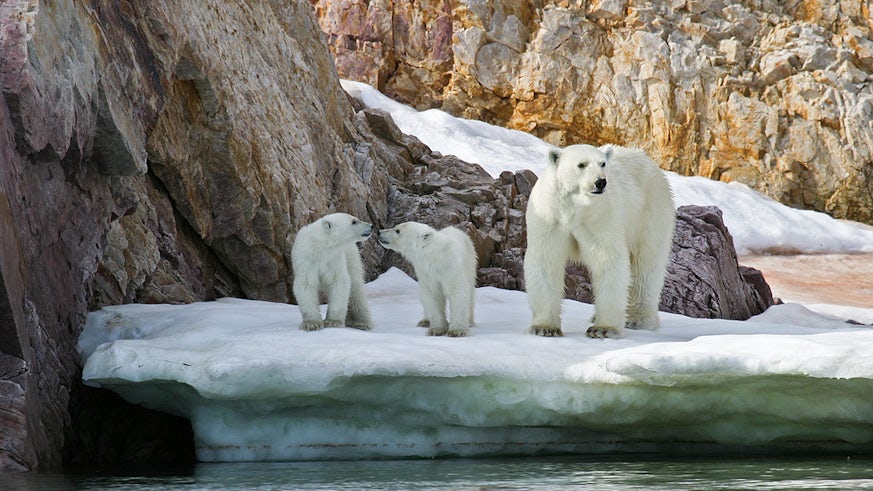Polar bear gut synchrony damaged by mercury from their prey
6 December 2021

High levels of mercury in the digestive systems of polar bears have been linked to decreased gut microbiota diversity, a key player in health, adaptation and immunity
Research led by School of Biosciences Postdoctoral Researcher Dr Sophie Watson found that the presence of mercury, already known as a harmful neurotoxin, is linked to decreased bacterial diversity and a change in composition of the guts of polar bears.
Sophie said: “Associations between diet-acquired mercury and microbiota have never been looked at before in polar bears and, in general, have only been studied in a handful of animals. We have shown that diet-driven mercury contamination may have more intricate effects on host health than previously shown.”
Having lower bacterial diversity may leave polar bears less resilient to pathogenic bacteria, leading to a greater risk of infection and illness.
It may also have implications for their adaptive potential – animals evolve alongside their gut bacteria over incredibly long periods of time, and so the bacteria present are perfectly adapted to help their host digest key nutrients in their diet and exclude harmful bacteria. The findings could therefore be a sign that the internal physiology polar bears have evolved, crucial for digesting food and survival, is in flux.
Microbiota in the gut is also thought to modulate environmental contaminants, including heavy metals such as mercury, so a decrease in this mechanism is a worrying sign.
Polar bears typically hunt seals and cetaceans. Any mercury present in their prey is then absorbed into their systems.
The team studied the gut composition of polar bears in the southern Beaufort Sea in the Arctic Ocean.
Senior Lecturer and senior author of the study Dr Sarah Perkins added: “In a wider sense, our work shows that even in remote areas species can suffer the impacts of anthropogenic activities."
Published in the journal Scientific Reports, the paper is a collaboration between Cardiff University, Fondazione Edmund Mach (Italy), McGill University (Quebec), and the US Geological Survey.